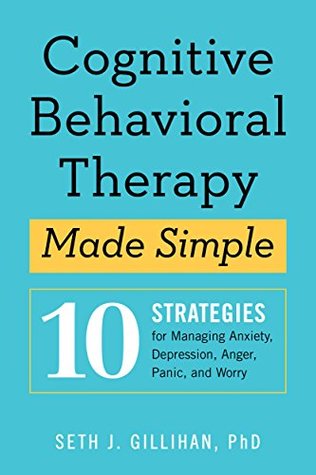More on this book
Community
Kindle Notes & Highlights
Read between
August 31 - September 11, 2022
When we’ve been suffering for a long time, it’s understandable that we want to get better as quickly as possible. We might be tempted to try to do everything at once, and set overly ambitious goals for ourselves. If our goals are unrealistic, we set ourselves up for feeling like a failure when we don’t reach them. We may start out strong and then fade quickly as we exhaust our already depleted reserves.
As you’re setting goals for yourself, aim to balance discipline and compassion, holding yourself to a standard while also being kind to yourself.
Two powerful factors drive avoidance of activities: 1An immediate sense of relief from dodging what we think will be difficult 2Not experiencing the reward from engaging in the activity, thereby further diminishing our motivation for it
A core belief is like a radio station—the songs may differ, but they belong to the same genre: country, jazz, hip-hop, or classical, for example. When you’re tuned to a station, you know what kind of songs to expect. In the same way, our core beliefs cue up predictable thoughts. For example, Simon’s core belief of being unappreciated triggered negative automatic thoughts about others’ lack of gratitude. By noticing the “tracks” that your mind often plays, you’ll discover what frequency you’re tuned to. With practice, you can develop the ability to change the station.
sensory experiences (sights, sounds, etc.) as well as your thoughts, feelings, and bodily sensations. 2Open to what is happening in the moment, allowing your experience to be as it is rather than resisting. 3Bring a “beginner’s mind” to the activity, as though it’s the first time you’ve ever done or witnessed it. Let go of preconceived expectations of how it will be. 4Allow the experience to take as long as it takes, rather than trying to rush through it to the next thing. 5Notice the urge to grab on to aspects of the experience you like and push away the parts you don’t. 6Allow thoughts to
...more
If you’re determined to push through procrastination, here’s a plan to get started: 1Consider carefully how procrastination is affecting your life. 2Identify a task you’ve been meaning to do or one you habitually struggle to do promptly, that you will plan to work on this week. 3Choose one or two strategies from each of the domains (Think, Act, Be) to help you complete your task. Take care not to choose so many strategies that it becomes unmanageable and counterproductive. 4Keep track of your progress and what is helpful. 5Use additional techniques as necessary. 6Maintain a list of techniques
...more


